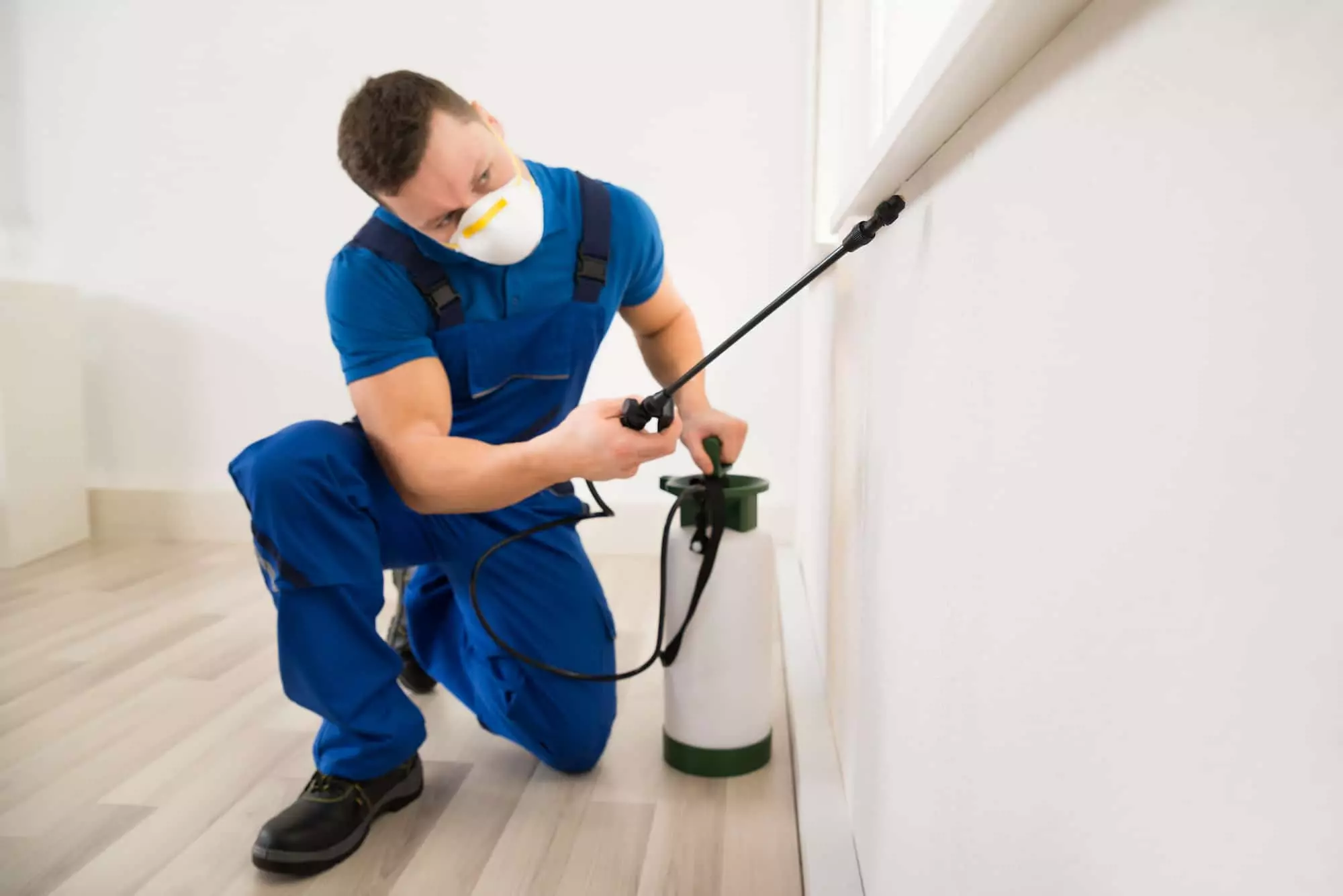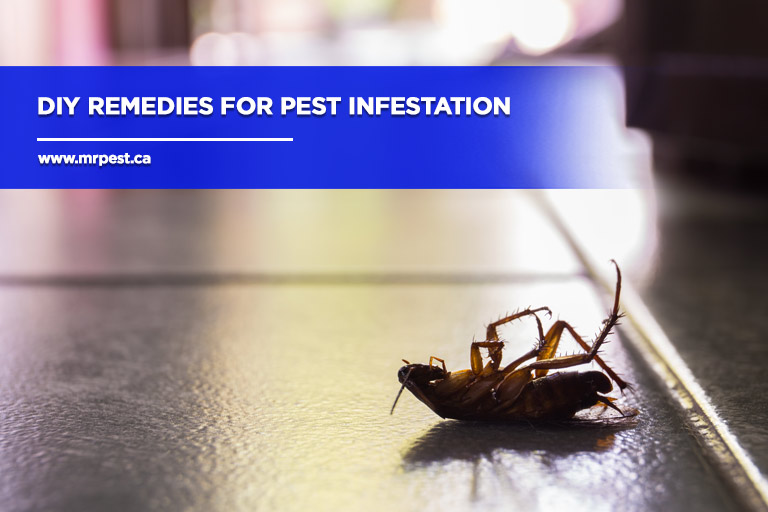Safe and Reliable Bug Control for Lasting Security
Effective insect administration calls for a diverse strategy that balances environmental stability with the requirement for effective insect reductions. The subtleties of these techniques may not be instantly clear, motivating a closer assessment of the practices that can lead to lasting insect control end results.
Understanding Insect Control Approaches
Pest control incorporates a range of techniques focused on managing and eliminating unwanted bugs and rats that can threaten both wellness and residential property. Recognizing these approaches is essential for effective insect monitoring.
The main classifications of pest control methods consist of mechanical, biological, and chemical approaches. Mechanical approaches include physical barriers and traps to stop pest access and capture unwanted species. Making use of screens on windows or employing sticky traps can considerably minimize insect populations without introducing harmful substances - exterminator coquitlam.

Chemical insect control is frequently the most identified approach, utilizing pesticides to get rid of parasites. These chemicals can be effective but have to be made use of with caution to prevent negative effects on non-target types and the atmosphere.
Advantages of Eco-Friendly Solutions
Exactly how can eco-friendly options change insect control practices? The adoption of eco-friendly insect control techniques offers many advantages, dramatically boosting the efficiency and safety and security of parasite monitoring.

Another advantage is the positive effect on local biodiversity. Green remedies are created to target details pests while protecting beneficial insects and wild animals, promoting a balanced environment. This technique lines up with the expanding consumer need for lasting practices, enhancing the online reputation of insect control providers.
Integrated Pest Management Strategies
The implementation of eco-friendly solutions normally leads to the adoption of Integrated Pest Management (IPM) strategies, which further boost bug control efficiency. IPM is an all natural method that integrates numerous methods to handle bug populations while decreasing environmental impact. This technique highlights making use of biological, social, mechanical, and chemical controls, guaranteeing a lasting and well balanced technique of bug monitoring.
One basic element of IPM is the complete evaluation of bug task and ecological problems. By keeping an eye on pest populations and identifying their life process, practitioners can apply targeted interventions that disrupt the bug's habitat or lifecycle, lowering reliance on chemical pesticides. In addition, social techniques such as plant rotation and environment control can considerably decrease pest facility and recreation.
Another critical part is the use of biological control agents, such as valuable insects or microorganisms, which can naturally subdue pest populations. When chemical applications are essential, IPM focuses on using low-risk pesticides and uses them uniquely, reducing exposure to non-target microorganisms and people.
Including IPM methods not only enhances bug control effectiveness yet likewise advertises a much safer environment, aligning with the expanding demand for lasting techniques in bug monitoring.
Safe Practices for House Owners
Comprehending the relevance of risk-free techniques in insect control can equip property owners to visit their website efficiently take care of insect issues while securing their health and the atmosphere. Implementing safe approaches and preventive measures is vital in decreasing exposure to dangerous chemicals.
Homeowners should first analyze their atmosphere for problems that draw in pests, such as standing water, food, and clutter waste. Regularly cleaning and securing entrance points can discourage parasites from getting into the home. Utilizing natural More hints deterrents, such as essential oils or diatomaceous planet, can supply effective alternatives to chemical pesticides.
When chemical treatments are necessary, home owners need to opt for products that are specifically identified as secure for household use. It is vital to adhere to application standards meticulously to stay clear of too much exposure. In addition, making use of targeted therapies in areas where pests are determined, as opposed to covering spraying, can substantially reduce chemical usage.
Finally, keeping open communication with parasite control specialists is important. Homeowners need to ask about the security of items made use of and request eco-friendly options whenever possible. By taking on these safe practices, home owners can create a much healthier living setting while properly handling bug problems.

Tips for Long-Term Protection
Establishing an insect management method that emphasizes long-term protection can substantially boost the efficiency of the safe practices previously reviewed. To accomplish this, homeowners must execute normal inspections of their residential property, concentrating on concealed locations such as attic rooms, cellars, and crawl areas. Early discovery of insect activity is critical in stopping infestations from taking hold.
These practices reduce attractants that attract pests right into the home. Securing entrance points, such as cracks around windows and doors, can successfully obstruct prospective insect accessibility.
Landscape design must also be thought about; keeping plants trimmed and preserving a distance in between plants and the home decreases concealing areas for insects. Utilizing natural deterrents, such as essential oils or diatomaceous planet, can better prevent invasions without resorting to extreme chemicals.
Finally, teaming up with an expert insect control solution for regular examinations can give an added layer of protection. These experts can provide customized recommendations and progressed therapies, making sure that your home continues to be safeguarded versus pests in the long-term.
Final Thought
In conclusion, trusted and risk-free insect control needs a diverse method that emphasizes environment-friendly approaches and integrated pest management. By applying all-natural deterrents, carrying out regular evaluations, and keeping correct sanitation, homeowner can substantially reduce insect populaces while shielding valuable insects and the environment. Cooperation with expert insect control solutions boosts the effectiveness of these methods, making certain customized remedies that give enduring security and assurance against future infestations.
Effective parasite monitoring requires a complex technique that stabilizes environmental stability with the need for efficient bug suppression. The fostering of environment-friendly pest control approaches supplies many advantages, considerably improving the performance and safety and security of pest management.The implementation of environmentally friendly solutions naturally leads to the adoption of Integrated Insect Management (IPM) techniques, which even more improve insect control roach control efficacy. exterminator coquitlam. By monitoring parasite populations and identifying their life cycles, specialists can apply targeted interventions that interrupt the insect's environment or lifecycle, minimizing dependence on chemical pesticides.In conclusion, safe and reputable insect control requires a diverse technique that emphasizes eco-friendly techniques and incorporated parasite administration